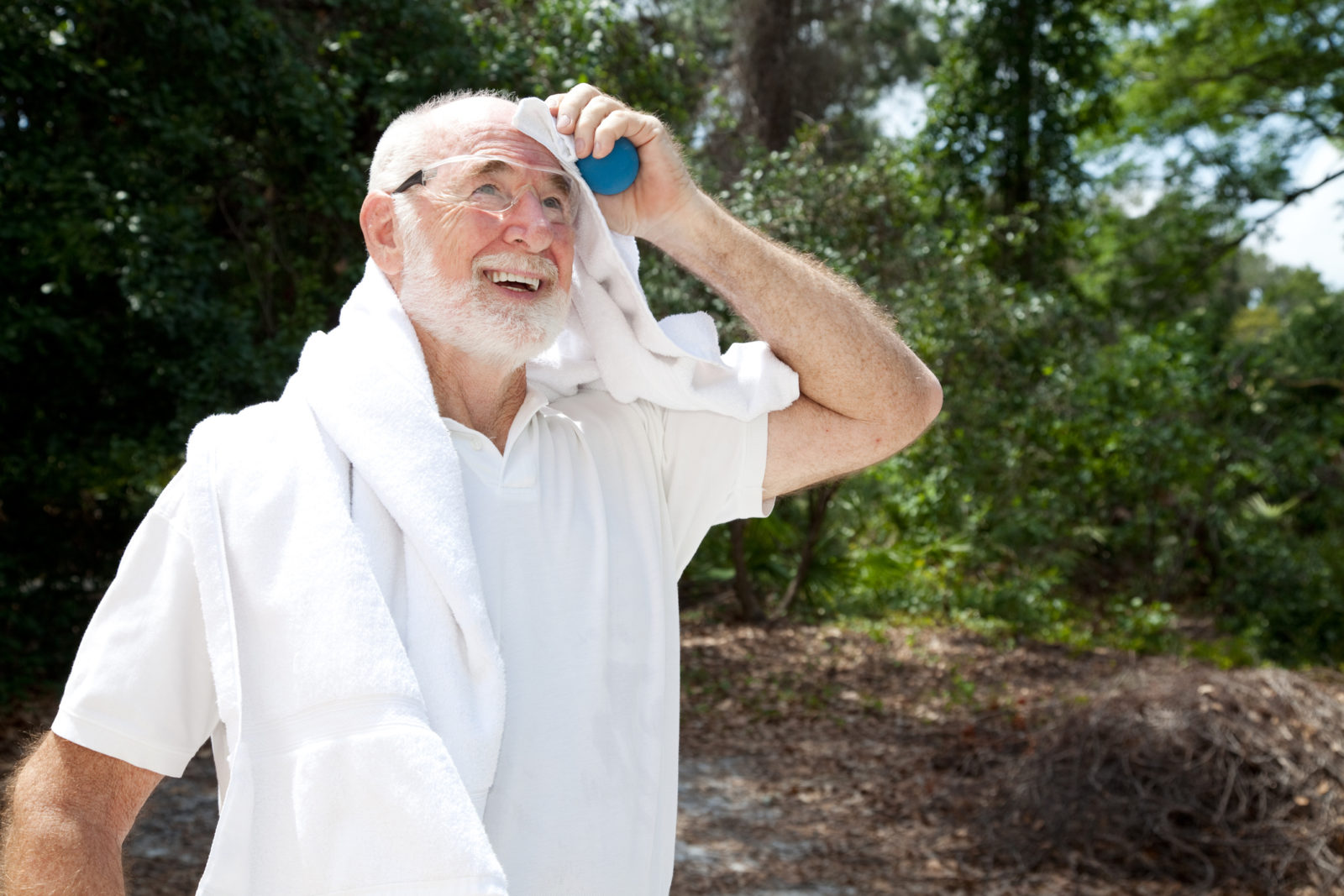Staying Cool and Safe During the Heat of Summer

Tomorrow is the first day of summer and while this often marks a time of fun and relaxation for many, for some, summer means many days of uncomfortable heat and humidity. According to the National Weather Service, heat is one of the leading causes of weather-related death in the United States, causing hundreds of fatalities each year. And seniors are more susceptible to heat-related maladies, as they are less likely to sense and respond to a change in temperature. Additionally, age, certain health conditions and medications can make it more difficult for the body to regulate its temperature or to perspire.
Fortunately, there are several things we can do to stay safe and cool, even in the midst of summer’s hottest days.
Drink plenty of fluids
Just as our sensitivity to heat dulls as we age, so does our awareness of thirst. This, along with our body’s lessened ability to conserve water as we grow older, put seniors at greater risk of dehydration. Summer heat adds to the risk, because on hot days, the body loses water more quickly. Here are some tips to stay hydrated this summer.
- Don’t wait until you’re thirsty to take in fluids. If you’re thirsty, you’re already dehydrated.
- Avoid caffeine and alcohol, as these can cause the body to lose even more fluid.
- Eat lots of fresh fruit, a wonderful source of fluids – not everything has to be water.
- Add fresh lemon or lime to your water to add a little flavor.
- Use water to dilute fruit juices, making them last longer and increasing your fluid intake.
- Get creative! Make “mocktails,” like nonalcoholic daiquiris and pina coladas.
If you are on a fluid-restricted diet, consult your physician about how to get the fluids you need during the hot summer months.
Find air conditioned environments
If you have air conditioning in your home, run it during the hottest parts of the day, and at night, open your windows to allow in the cool air. If your home doesn’t have air conditioning, go to a movie, museum or library. If you must go outside, do it as early in the morning as possible, when temperatures are still relatively cool. If you need financial help to keep your home cool, contact the Low Income Home Energy Assistance Program.
Eat light
Overeating causes the body to produce more heat. So eat less and eat foods that are “lighter” like fresh fruits and vegetables and salads. Consider supplementing your diet with folic acid – a study from Penn State showed that folic acid can enhance blood vessel dilation in older adults, which may help them to avoid heat-related issues such as heart attacks or strokes. Please consult with your doctor before adding any supplements to your diet.
Dress appropriately
Lightweight, light-colored, and loose-fitting clothing, make of cotton or linen, are the perfect choices for summer wear. If you’re feeling too cool, dress in layers that are easy to remove if it becomes too hot.
Take a cool shower or bath
If you are housebound and don’t have air conditioning, get in the shower and run cool water or hop in a tub of cool water.
Know the warning signs of potential problems
- If you experience dizziness, heavy sweating, weakness, a rapid heartbeat, nausea or fainting, you may be suffering from heat exhaustion. Move to a cool location as quickly as possible and lie down. Loosen your clothing and apply cool, wet cloths to as much of the body as possible and slowly drink some cool water. Heat stroke is a more serious situation.
- In addition to the symptoms mentioned above, people with heat stroke may experience a high fever, chest pain or unconsciousness. In this case, call 911 immediately. Before paramedics arrive, move the person to a cooler environment and apply cool cloths.
- Dehydration may be marked by dizziness, fatigue, dark yellow urine with low output, low bold pressure, increased heart rate, muscle cramps, dry mouth, and constipation. In you’re experiencing any of these symptoms, start fluid intake immediately. Don’t wait until you’re thirsty to start taking fluids. If you’re thirsty, you’re already dehydrated.
This information is not intended to replace the advice of your doctor.
![LifeCare Advocates [logo]](https://www.lcadvocates.com/wp-content/uploads/sites/270/2017/11/logo.png)